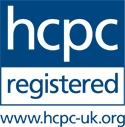Urinary Leakage in Sports: How Physiotherapy Can Help


The Unspoken Challenge in Sports: Urinary Leakage
When we think of sports, we often imagine athletes pushing their physical limits, displaying strength, agility, and determination. However, there is one aspect of sports that is rarely discussed but affects many athletes, both male and female: urinary leakage. Whether you're a golfer, rugby player, footballer, weightlifter, or a participant in cross fit or any other sport, urinary leakage can be an embarrassing and frustrating issue. Luckily, physiotherapy can offer effective solutions to help athletes overcome this challenge and continue to excel in their chosen sport.
Understanding Urinary Leakage
Urinary leakage, also known as urinary incontinence, is the involuntary loss of urine. It can range from a few drops to a significant amount, depending on the individual. In sports, urinary leakage is commonly associated with activities that involve high impact, sudden movements, or increased abdominal pressure. This includes actions like jumping, running, lifting weights, or even laughing and coughing.
The causes of urinary leakage in sports can vary. Weak pelvic floor muscles, hormonal changes, previous childbirth, prostate issues in men, and certain medical conditions can all contribute to this problem. Regardless of the cause, the impact on an athlete's confidence and performance can be significant.
The Role of Physiotherapy
Physiotherapy is a non-invasive and effective approach to address urinary leakage in athletes. A qualified physiotherapist can provide a comprehensive assessment and develop a personalized treatment plan to help athletes regain control over their bladder function.
1. Pelvic Floor Muscle Training
One of the key components of physiotherapy for urinary leakage is pelvic floor muscle training. The pelvic floor muscles play a crucial role in supporting the bladder and maintaining continence. Through targeted exercises, athletes can strengthen these muscles, improving their ability to control urinary flow during sports activities.
2. Core Strengthening
A strong core is essential for maintaining stability and reducing the pressure on the pelvic floor muscles. Physiotherapy can include exercises to strengthen the abdominal and back muscles, enhancing overall core strength. This, in turn, can help athletes better manage urinary leakage during sports movements.
3. Bladder Training
Physiotherapists can also provide guidance on bladder training techniques. By gradually increasing the time between bathroom visits, athletes can improve their bladder capacity and reduce the frequency of urinary leakage episodes. This approach helps athletes regain control over their bladder function and allows them to focus on their sport without constant worry.
4. Education and Lifestyle Modifications
Physiotherapy sessions offer an opportunity for athletes to gain knowledge about their condition and receive guidance on lifestyle modifications. This may include dietary changes, hydration strategies, and advice on managing fluid intake before, during, and after sports activities. A physiotherapist can also provide tips on proper body mechanics and breathing techniques to minimize the risk of urinary leakage.
Regain Confidence and Excel in Your Sport
Urinary leakage should not hold athletes back from pursuing their passion and excelling in their chosen sport. With the help of physiotherapy, athletes can address this issue head-on, regain control over their bladder function, and boost their confidence both on and off the field.
If you are experiencing urinary leakage during sports or any other activities, consult a qualified physiotherapist who specialises in pelvic health. They can provide the guidance and support you need to overcome this challenge and continue enjoying your athletic pursuits.
Remember, urinary leakage is a common issue, and seeking help is a proactive step towards a more comfortable and confident sporting experience. Also addressing urinary leakage and strengthening atheletes pelvic floor has been proven to improve performance in a number of sports.
For more information contact now.



